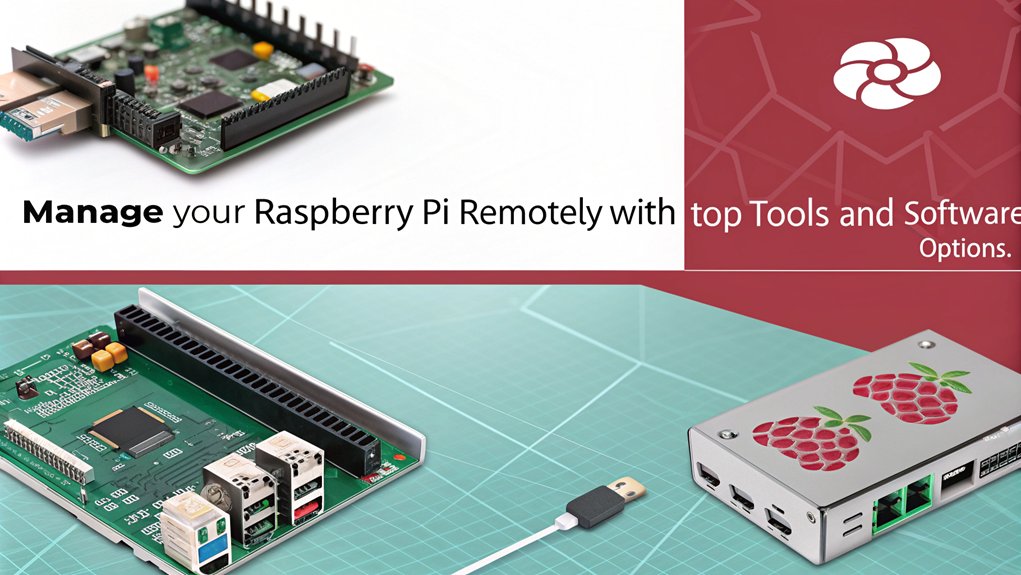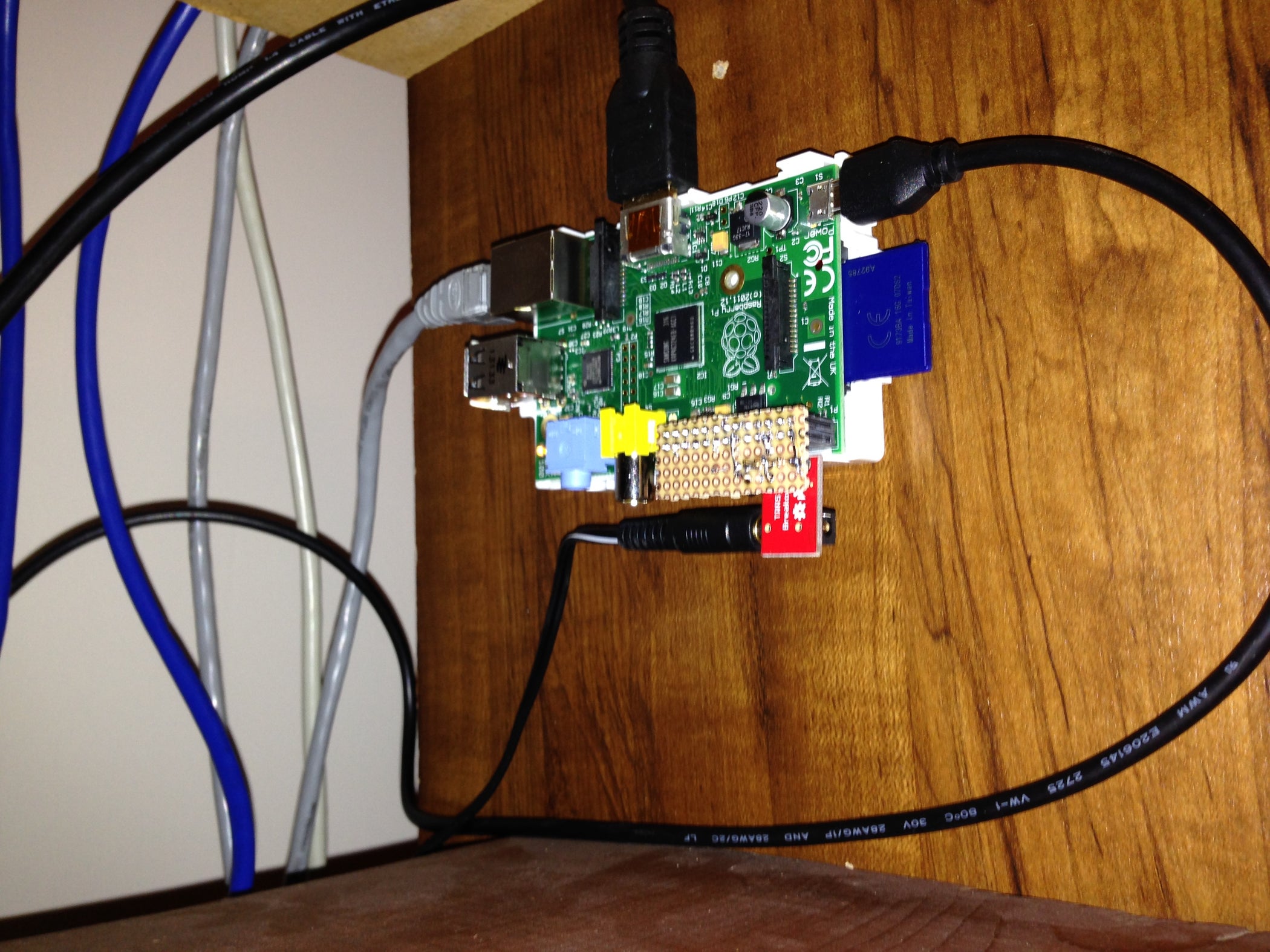Best Remote Raspberry Pi Management Platform: Unlock Your Pi's Potential
When it comes to managing your Raspberry Pi remotely, finding the right platform can be a game-changer. Whether you're a tech enthusiast or a professional developer, having a reliable remote management solution is essential. In this article, we'll dive deep into the world of remote Raspberry Pi management platforms and help you discover the best options available. So, buckle up and let's get started!
Managing a Raspberry Pi remotely might sound like a daunting task, but with the right tools, it becomes a breeze. Imagine being able to control your Pi from anywhere in the world, monitor its performance, and deploy updates effortlessly. This is where the best remote Raspberry Pi management platforms come into play. They offer a seamless experience, ensuring your projects run smoothly without any hiccups.
Now, you might be wondering, "Why do I need a remote management platform for my Raspberry Pi?" Well, think about it this way—your Pi could be running critical applications, acting as a home server, or even powering IoT devices. In such scenarios, having a reliable remote management solution becomes crucial. Let's explore what makes these platforms so special and how they can elevate your projects to the next level.
Read also:Richard Williams Iii The Untold Story Of A Legacy In Motion
Why Remote Management Matters for Raspberry Pi
Let's face it—Raspberry Pi has become a staple in the tech world. From hobbyists to professionals, everyone loves its versatility and affordability. However, managing a Pi physically every time you need to make changes can be a pain. This is where remote management comes in handy. By using the best remote Raspberry Pi management platform, you can streamline your workflow and focus on what truly matters—innovation.
Remote management platforms offer a plethora of benefits, including:
- Easy access to your Pi from anywhere
- Real-time monitoring and troubleshooting
- Automated updates and backups
- Centralized control over multiple Pis
These features not only save you time but also enhance the reliability of your projects. Whether you're running a media center, a home automation system, or a weather station, having a robust remote management solution is a must-have.
Top 10 Remote Raspberry Pi Management Platforms
Now that we understand the importance of remote management, let's take a look at the top platforms available in the market. Each platform has its own set of features, so it's essential to choose one that aligns with your specific needs.
1. BalenaCloud
BalenaCloud is a popular choice among developers and hobbyists alike. It offers a cloud-based solution for managing Raspberry Pi devices remotely. With BalenaCloud, you can deploy, monitor, and update your Pi with ease. The platform supports multiple operating systems, making it compatible with a wide range of projects.
2. Resin.io
Resin.io, now part of the Balena family, provides a powerful remote management solution for Raspberry Pi. It allows you to manage fleets of devices, automate updates, and ensure your projects are always up-to-date. The platform's user-friendly interface makes it accessible even for beginners.
Read also:Did The Rock Die Unraveling The Mystery Around Dwayne Johnsons Health
3. OpenHAB
OpenHAB is an open-source automation platform that can be used to manage Raspberry Pi devices remotely. It's perfect for home automation enthusiasts who want to control their smart home devices from anywhere. OpenHAB supports a wide range of protocols, ensuring compatibility with various devices.
4. Home Assistant
Home Assistant is another excellent option for managing Raspberry Pi remotely. It's designed specifically for home automation and offers a comprehensive set of features. With Home Assistant, you can control smart devices, monitor energy usage, and even integrate with third-party services like Google Assistant and Amazon Alexa.
5. WebIOPi
WebIOPi is a lightweight platform that allows you to control your Raspberry Pi's GPIO pins via a web interface. It's perfect for small-scale projects and offers a simple yet effective way to manage your Pi remotely. WebIOPi supports both Python and Lua, giving you flexibility in development.
6. Pi-Point
Pi-Point is a unique remote management platform that focuses on creating wireless networks using Raspberry Pi. It's ideal for setting up hotspots, mesh networks, and other wireless applications. With Pi-Point, you can manage your network remotely and ensure seamless connectivity.
7. Raspbian with SSH
If you're looking for a no-frills solution, Raspbian with SSH might be the way to go. By enabling SSH on your Raspberry Pi, you can access it remotely using a terminal. While not as feature-rich as other platforms, it's a reliable and secure option for basic remote management tasks.
8. Pi-hole
Pi-hole is a popular ad-blocking solution that can be managed remotely using a web interface. It's perfect for setting up a network-wide ad blocker and monitoring internet activity. With Pi-hole, you can control your Pi remotely and ensure a clean browsing experience.
9. OctoPrint
OctoPrint is a web-based platform designed specifically for managing 3D printers powered by Raspberry Pi. It offers real-time monitoring, remote control, and even timelapse recording. If you're into 3D printing, OctoPrint is a must-have for your setup.
10. Domoticz
Domoticz is an open-source home automation platform that allows you to manage Raspberry Pi devices remotely. It supports a wide range of devices and protocols, making it a versatile choice for smart home enthusiasts. With Domoticz, you can control lights, thermostats, and security systems from anywhere.
Choosing the Right Platform for Your Needs
With so many options available, choosing the right remote Raspberry Pi management platform can be overwhelming. To help you make an informed decision, consider the following factors:
- Purpose of your project
- Number of devices you need to manage
- Level of technical expertise
- Budget constraints
- Compatibility with other devices and services
For example, if you're running a large-scale IoT project, platforms like BalenaCloud or Resin.io might be the best fit. On the other hand, if you're a hobbyist looking to automate your home, Home Assistant or OpenHAB could be more suitable.
Key Features to Look for in a Remote Management Platform
When evaluating remote Raspberry Pi management platforms, keep an eye out for the following features:
- Remote access via web or mobile app
- Real-time monitoring and alerts
- Automated updates and backups
- Centralized device management
- Support for multiple operating systems
- Integration with third-party services
These features ensure that your platform is not only functional but also scalable, allowing you to grow your projects as needed.
Best Practices for Remote Raspberry Pi Management
While having the right platform is crucial, following best practices can further enhance your remote management experience. Here are a few tips to keep in mind:
- Always use strong passwords and enable two-factor authentication
- Regularly update your software and firmware
- Monitor your Pi's performance and address any issues promptly
- Backup your data regularly to avoid data loss
- Document your setup and configurations for future reference
By adhering to these best practices, you can ensure the security and reliability of your Raspberry Pi projects.
Real-World Applications of Remote Raspberry Pi Management
Remote Raspberry Pi management isn't just limited to hobbyists and developers. It has numerous real-world applications across various industries. For instance:
- Healthcare: Remote monitoring of medical devices
- Education: Managing classroom technology
- Agriculture: Monitoring and controlling smart farming systems
- Retail: Managing point-of-sale systems
- Manufacturing: Monitoring production lines
These applications highlight the versatility and potential of remote Raspberry Pi management platforms in transforming industries.
Future Trends in Remote Raspberry Pi Management
As technology continues to evolve, so does the world of remote Raspberry Pi management. Some exciting trends to watch out for include:
- Increased adoption of AI and machine learning for predictive maintenance
- Integration with 5G networks for faster and more reliable connectivity
- Development of more user-friendly interfaces for beginners
- Expansion of IoT ecosystems and interoperability between devices
These trends promise to make remote management even more efficient and accessible in the future.
Conclusion: Take Control of Your Raspberry Pi Projects
In conclusion, finding the best remote Raspberry Pi management platform is essential for anyone looking to take their projects to the next level. Whether you're managing a single Pi or a fleet of devices, these platforms offer the tools and features you need to succeed.
So, what are you waiting for? Dive into the world of remote management and unlock the full potential of your Raspberry Pi. Don't forget to share your thoughts and experiences in the comments below. And if you found this article helpful, be sure to check out our other guides and tutorials. Happy tinkering!
Table of Contents
Here's a quick overview of the sections we covered in this article:
- Best Remote Raspberry Pi Management Platform: Unlock Your Pi's Potential
- Why Remote Management Matters for Raspberry Pi
- Top 10 Remote Raspberry Pi Management Platforms
- Choosing the Right Platform for Your Needs
- Key Features to Look for in a Remote Management Platform
- Best Practices for Remote Raspberry Pi Management
- Real-World Applications of Remote Raspberry Pi Management
- Future Trends in Remote Raspberry Pi Management
- Conclusion: Take Control of Your Raspberry Pi Projects


